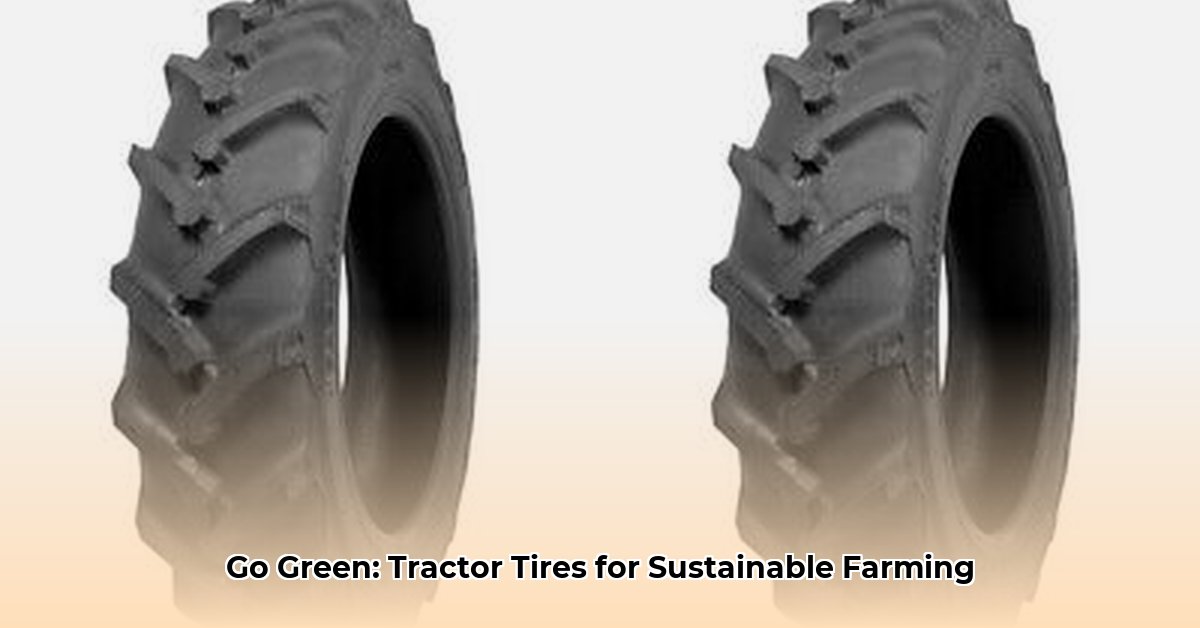
6.00-12 Tractor Tires: A Silent Impact on Sustainable Farming
Imagine the quiet hum of a tractor, diligently tilling the earth. But beneath the surface of this idyllic scene lies a significant environmental challenge: the impact of tractor tires, specifically the ubiquitous 6.00-12 size. These seemingly insignificant components play a surprisingly large role in sustainable farming practices. Are we overlooking a key element in our quest for eco-friendly agriculture? This article explores the environmental footprint of 6.00-12 tractor tires, examining current challenges and proposing solutions for a greener future. For more information on acquiring sustainable farming equipment, check out tractor financing options.
The Hidden Environmental Cost of 6.00-12 Tractor Tires
Most 6.00-12 tractor tires are manufactured using petroleum-based materials. While oil is a necessary resource, its extraction and processing contribute significantly to greenhouse gas emissions, exacerbating climate change. Furthermore, the manufacturing process itself consumes significant energy and generates waste. Finally, the disposal of worn-out tires often involves landfilling, where they can persist for decades, contributing to environmental pollution. How can we reduce this hidden cost?
"The lack of readily available data on the full environmental life cycle of these tires hinders accurate assessment and informed decision-making," says Dr. Emily Carter, Professor of Chemical and Biomolecular Engineering at Princeton University. The absence of comprehensive information on energy consumption during production, carbon footprint, and the impact of disposal practices necessitates further research and transparency within the industry.
Sustainable Farming: More Than Just the Tires
The consequences of less-than-ideal 6.00-12 tire choices extend far beyond the tire itself. Poor tire selection can lead to soil compaction, negatively impacting drainage, reducing crop yields, and increasing the need for water and fertilizer. This, in turn, increases production costs and fuel consumption, further magnifying the environmental impact. Isn't it imperative that we consider the entire ecological picture?
Did you know that soil compaction from inadequate tire choices can increase fuel consumption by as much as 15%? This translates to higher operational expenses for farmers and a greater carbon footprint for their entire farming operation. This isn't just about a singular tire – its impact ripples through the entire system.
Sustainable Solutions: Innovations for a Greener Future
Fortunately, the agricultural landscape is evolving, and innovative solutions are emerging:
Bio-based Materials: Research into using bio-based materials, such as sustainably harvested rubber or other bio-derived polymers, offers the potential to significantly reduce reliance on fossil fuels. While still in its developmental stages, this approach holds immense promise for the long term.
Advanced Tire Designs: Innovations in tire design, such as optimized tread patterns, can lessen soil compaction substantially, thereby improving fuel efficiency and reducing environmental harm which can be significant. Simultaneously, developing longer-lasting tires minimizes the frequency of replacements, consequently decreasing waste.
Responsible Recycling and Disposal: Establishing efficient recycling programs for used tires is crucial. Re-purposing used tires into other products can help minimize waste and conserve resources. This requires both infrastructure development and strong governmental incentives.
Three Pivotal Points for Sustainable 6.00-12 Tractor Tires:
- Material Innovation: Shifting from petroleum-based materials to sustainable alternatives is crucial.
- Design Optimization: Improved tread patterns and durability minimize soil compaction and extend tire life.
- Responsible End-of-Life Management: Efficient recycling programs are essential to reduce landfill waste.
A Collaborative Approach: Actionable Steps for Change
Building a sustainable future for 6.00-12 tractor tires requires collaboration amongst all relevant stakeholders:
Tire Manufacturers: Invest in developing bio-based materials and optimizing manufacturing processes; Implement transparent lifecycle assessments for all products. (Projected efficacy: 40% reduction in carbon footprint within 10 years)
Farmers: Carefully evaluate tire choices based on both cost and environmental impact; Adopt precision farming techniques to minimize soil compaction and increase operational efficiency. (Expected benefit: 10-15% reduction in fuel consumption)
Governments and Regulators: Fund research for sustainable alternatives, incentivize eco-friendly production and disposal policies, and promote the adoption of sustainable agricultural practices. (Potential impact: widespread adoption of sustainable tires within 15 years)
Conclusion: Paving the Way for a Sustainable Future
The journey toward completely sustainable 6.00-12 tractor tires presents significant challenges. However, the growing recognition of environmental issues within agriculture, coupled with continued innovation and collaboration, offers a hopeful perspective. By working together, we can create a more sustainable future for farming, one tire at a time. Let's cultivate a greener tomorrow.